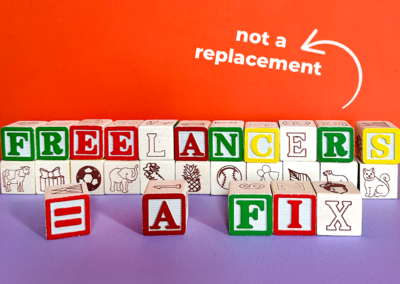In an Edelman poll taken shortly after the death of George Floyd, which sparked racial equality protests worldwide, more than 50% of respondents felt that brands and corporations are obligated to their employees to address racism. Not much of a surprise as Millennials and Generation Z in the workplace want to ensure two things when it comes to their employer’s values and commitment.
- That their company’s values align with their own.
- That their company’s values are authentic. More than anything, they want to know that the brands and companies, including the one at which they work, are not just paying lip service or cashing in — whether it’s by raising brand awareness or generating revenue.
Companies and brands certainly aren’t obligated to say or do anything about saving the environment, pay disparities for women, income inequality, or declaring that Black Lives Matter. They run the risk of alienating clients, customers, shareholders, and more, who may disagree on the issues and are willing to take their dollars elsewhere.
So, what’s a company to do? While it’s essential to weigh the risks, they can’t really afford to stay quiet or issue statements that thread the needle dissatisfying the very audience for whom it matters most. Companies and brands that are clear about their values and what’s important to them should make their intentions apparent to the audience that matters most — their employees.
That’s not to say that companies and brands shouldn’t invest in and publicly support issues of importance to their employees. However, when public statements are incongruent with an employee’s lived experience, especially when leaders fail to live up to the values espoused, companies risk more than their reputation.
Last year, the Business Roundtable issued a new purpose statement that nearly 200 company CEOs signed on to, vowing to place people over profits to promote an economy “that serves all people,” including investing in employees. Some would say it’s about time.
In that same Edelman report, 60% of respondents thought an inclusive work culture with a strong diversity program is critically important to attracting and retaining someone like them as an employee. In short, actions speak louder than words. As companies play catch up and evolve to meet their employees’ demands, they also need to give them a role in bringing their plans to life.
There are simple steps companies can take:
- Drive for inclusivity. Inclusivity is one of the most critical components to making employees feel like they belong. That means beyond representation, seeing people who look like them in managerial roles, employees need to feel welcomed in the workplace by their manager and peers. Most importantly, the policies and procedures, such as guidelines to help employees who are transitioning, that companies create should support an inclusive environment.
- Provide tools, resources, and training. Employees sometimes enter the workplace at different levels. As organizations evolve, they can ensure that employees develop, too, by giving them the tools and training needed to fulfill new roles and grow with the company. By providing development opportunities, employees are assured of a company’s investment in them.
- Hold everyone accountable, including the company. All employees should be held responsible for creating a culture that aligns with the company’s values. When a company allows employees to behave in ways that don’t align with their values, it’s one of the ways in which they lose credibility. If diversity is a value within your company, then how does it show up? How are employees expressing that value? And, has the company provided ways for you to hold them accountable?
When a company is doing all it can to create an experience that serves its employees, they may not need to shout it from the rooftops; their employees will do it for them.
Natasha’s Socials: LinkedIn
Editor’s Socials – Dominque Dajer: LinkedIn, Twitter, Instagram



